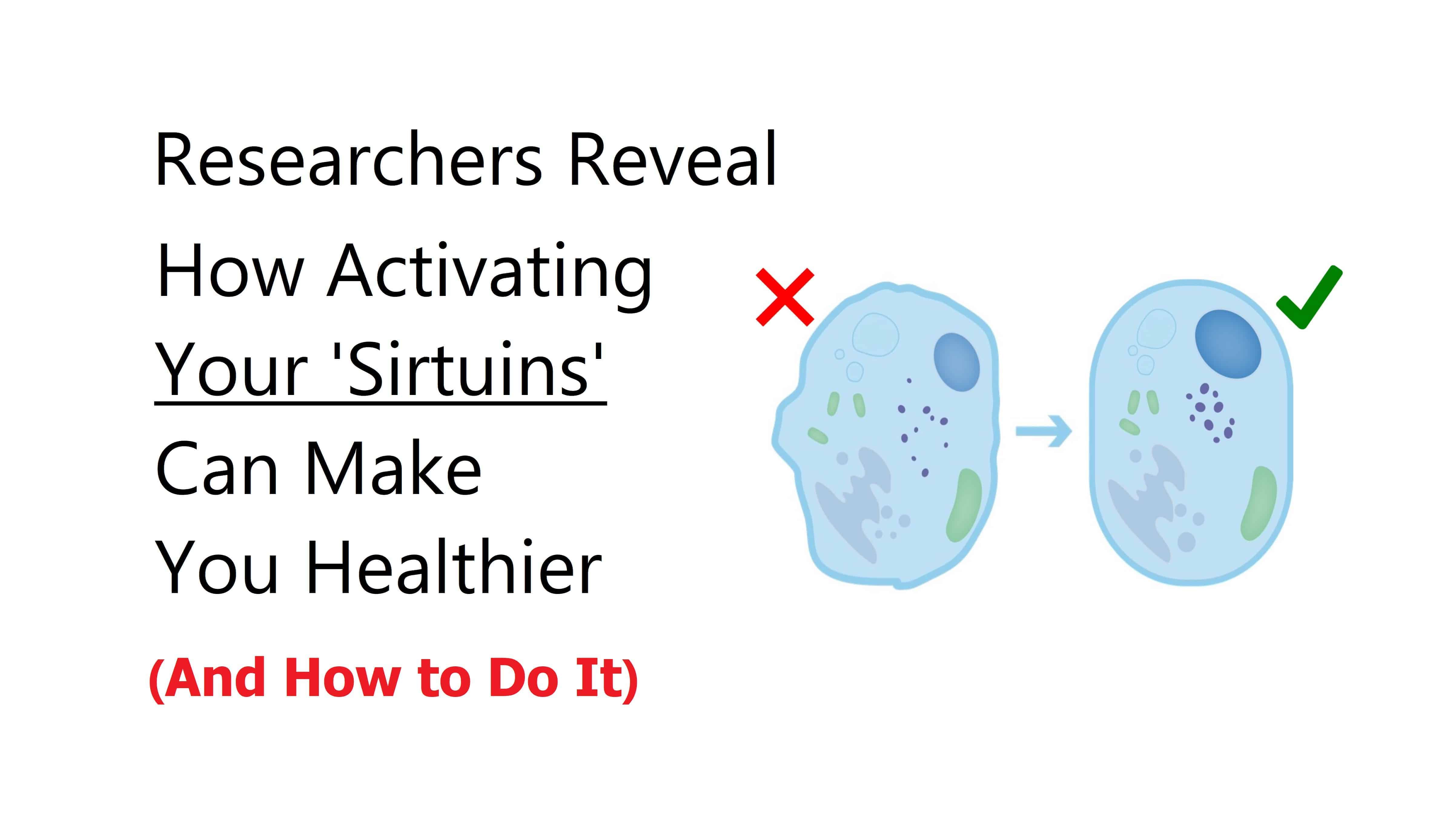The first question you’re all likely asking is “What in the heck are sirtuins?”
Sirtuins are a class of proteins that regulate our biological pathways. Biological pathways is a scientist’s way of saying “cellular changes.” Formation of new molecules or mechanisms that turn certain genes “on” or “off” are considered such pathways.
Sirtuins are linked to biological pathways that affect aging, apoptosis (cell death), caloric resistance, energy efficiency, inflammation, stress resistance, and transcription (genetic copying).
Why should I care?
Sirtuins are a biological and chemical phenomenon with a potential ability to impact the health and well-being of the human race.
Yes, we understand the previous sentence sounds like an intro to a sci-fi thriller, but it is nonetheless true.
The story begins with Dr. David Sinclair, an Australian-born Biology professor and founder of The Sinclair Lab at Harvard University. In a ground-breaking 2003 study, Sinclair and his team discovered the following:
Caloric restriction slows the pace of ageing and increases maximum lifespan…by increasing the activity of SIR2…evolutionary origins of this phenomenon suggest new lines of research into the therapeutic use of sirtuin activators. (We’ll discuss such ‘activators’ later on.)
It turns out that Dr. Sinclair was onto something, as his former company Sirtuis was purchased by pharma conglomerate GlaxoSmithKline for $720 million.
How Sirtuins May Be The Next Great Discovery
The Sinclair Lab, located within Harvard Medical School’s Department of Genetics states:
Though we are focus heavily on understanding fundamental mechanisms of aging at the genetic and biochemical levels, the more pressing goal is to find new and effective ways to treat common diseases including type II diabetes, Alzheimer’s disease, cardiovascular disease, heart failure and cancer.
You may notice the diseases and illnesses cited by Sinclair’s team are the leading causes of death among human beings. As we age, the risk factors of the aforementioned conditions increase drastically; making Sinclair’s research all the more vital.
In short, Sinclair may have found the scientific “fountain of youth,” as it were: little protein enzymes called sirtuins.
Red Wine and Sirtuins: A fascinating link
We’ve all heard that red wine is beneficial for human health, which is absolutely true. What you may not know is why it’s so beneficial, and how it may play an essential role in slowing aging and age-related disorders.
(As with any type of alcohol, moderation is advisable. It is also necessary for maximizing health benefits.)
Red wine’s health benefits result from its high concentration of antioxidants called polyphenols. Polyphenols “help protect the linking of blood vessels in your heart,” which may reduce the risk of coronary artery disease, the condition that results in heart attacks.
The key ingredient – and the one linked to sirtuin – is called resveratrol. Resveratrol prevents damages to blood vessels, reduces LDL (“bad”) cholesterol and prevents blood clots. For these reasons alone, sipping on the occasional glass of red wine is worth it – and the benefits do not end there.
Resveratrol is also a potential catalyst for sirtuin activity. A 2013 Harvard University study concludes:
…resveratrol directly activates a protein that promotes health and longevity in animal models…researchers have uncovered the molecular mechanism for this interaction, and show that a class of more potent drugs currently in clinical trials act in a similar fashion.
Says Dr. Sinclair: “In the history of pharmaceuticals, there has never been a drug …to make (a protein) run faster in the way that resveratrol activates SIRT1 (a sirtuin, “Almost all drugs either slow or block them.”
In other words, Dr. Sinclair’s meticulous research provides, for the first time, convincing scientific evidence demonstrating the possibility of slowing the aging process – and, along with it – age-related diseases and illnesses.
Related article: 7 Things That Will Make You Feel Younger
Hening Lin’s sirtuin research
Hening Lin is a Professor of Chemistry and Chemical Biology at Cornell University. In a way, Dr. Lin has advanced Dr. Sinclair’s discoveries by focusing on other crucial health benefits of sirtuins.
Lin focuses on all seven sirtuin enzymes, and “follows on that of other researchers studying aging who linked some of these enzymes to longevity.”
But Lin has brought some new insight as well.
While Dr. Sinclair’s work focuses primarily on the anti-ageing functions of “primary” sirtuins (“SIRT1, SIRT 2, SIRT 3 SIR 4), Dr. Lin has discovered that the so-called “orphan” sirtuins have plenty of potential, as well.
Especially as a potential cancer treatment.
In collaboration with two of his colleagues, Robert S. Weiss and Richard A. Cerione (both Cornell researchers), Lin researched and developed prototype drug molecules capable of manipulating sirtuin activity. Results to this point have been extremely promising as the drug molecules have shown “excellent anticancer activity.”
As with Sinclair’s research, Lin’s may lead to future development of cancer pharmaceuticals (among other promising drugs.)
In conclusion…
That sirtuin regulates certain biological pathways is a well-known fact within the scientific community – and has been for years.
However, it was not until Dr. Sinclair’s groundbreaking research, first published in 2003, that people began to understand the enzyme’s potential. Sinclair’s brilliance had become so well known that Harvard University gave him his own genetics lab. Not something that happens too often.
Just as important (and impressive), Dr. Sinclair’s research has inspired many other geneticists, biologists and chemists to continue his important work. As noted, Dr. Hening Lin is one such scientist, focusing his efforts on the anti-cancer properties of sirtuins.
In other words, reversing the neurological effects of aging and bringing cancer to its knees may well be within the near future.

















